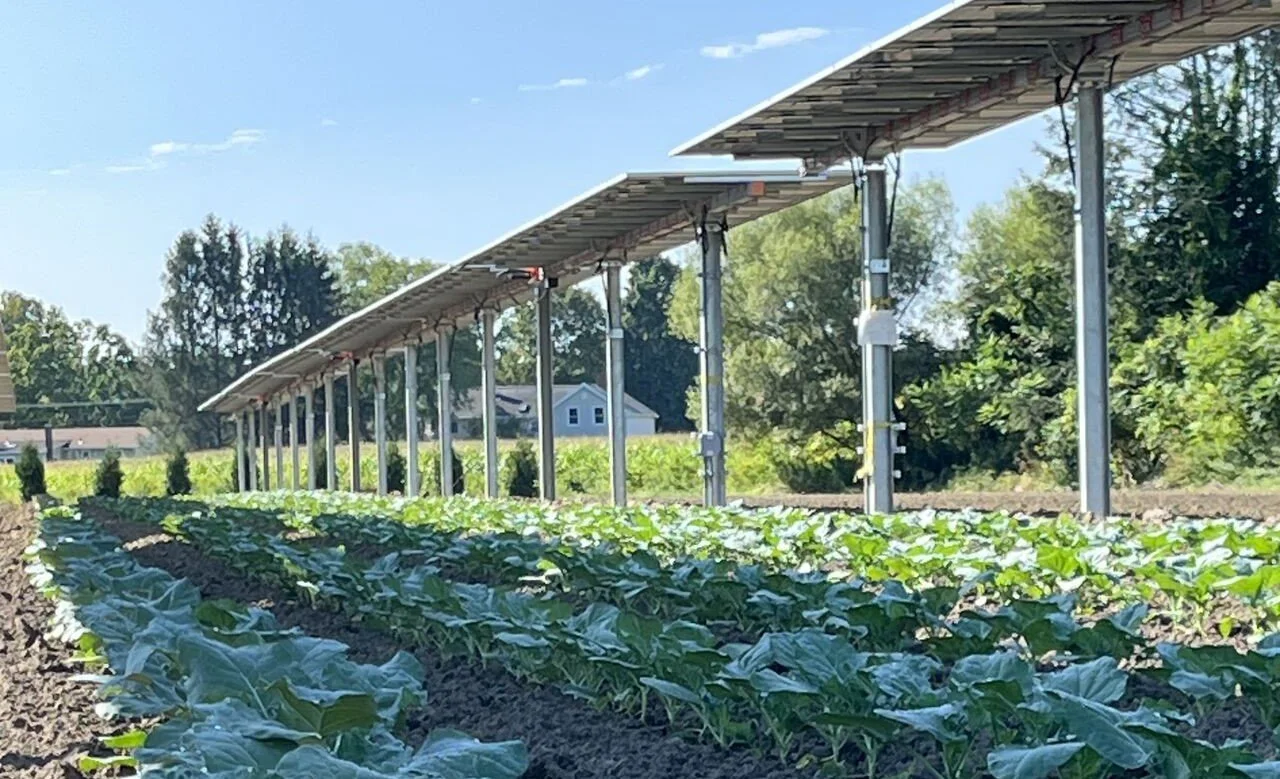Powering Communities Together
At the intersection of climate innovation and community equity, the John D. and Catherine T. MacArthur Foundation (MacArthur)’s investment in Sunwealth stands out not just for its scale but for its intention. John Balbach, Director of Impact Investments at MacArthur, recently sat down with Sunwealth’s M.A. Miller to talk about the origin and goals of their partnership—and why the work of democratizing access to solar power is as important as ever. Sunwealth makes essential investments into local sources of renewable energy for low- and moderate-income (LMI) communities through the financing and development of community-based solar projects.
Investing with a Mission and a Method
A conversation between John Balbach from the MacArthur Foundation and Sunwealth’s M.A. Miller, Investor Development Senior Manager.
MacArthur’s approach to impact investing sits within its Field Support Programs, which aim to contribute to the knowledge, understanding, and structures of a field to ensure the Foundation supports work that maximizes impact. To make its impact investments, the foundation manages a $500 million carve-out from its endowment, deploying capital through what essentially functions as a quasi-revolving fund aimed at making catalytic investments that at a minimum return principal, which can then be further reinvested.
The Foundation’s theory of change (TOC) for Climate Solutions focuses on reducing greenhouse gas emissions (carbon dioxide, methane, etc.) from energy-related sources while recognizing that the climate crisis exacerbates inequity. One of MacArthur’s key areas of focus for impact investments to advance that TOC is support for climate solutions in historically underinvested communities. That’s where Sunwealth comes in.
Sunwealth, with our explicit focus on delivering the financial and climate benefits of solar projects to LMI communities, offered a crisp alignment to that strategy. As Mr. Balbach put it, “it was a slam dunk to support Sunwealth’s leadership.”
More Than Capital
When asked what drew MacArthur to consider an investment in Sunwealth, Mr. Balbach highlighted our team’s clear, natural commitment to democratizing access to solar energy: “It wasn’t just talk; it was action. There is a DNA within the organization that prioritizes this mission.” Sunwealth's multi-year track record of successfully executing on these projects didn’t hurt either, he said.
Moreover, it was clear that Sunwealth has a rare ability to identify and underwrite projects that advance the renewable energy transition without leaving LMI communities behind. Mobilizing capital is undoubtedly an essential hurdle in addressing energy equity. However, without the pipeline of projects, local knowledge, and transaction expertise — particularly in communities that have historically been overlooked – asset owners run the risk of investing in business as usual.
In MacArthur’s view, leveraging its capital to grow and scale a model that delivers long-term impact and demonstrates the viability of community-based solar offers an opportunity to reshape the market with equity at the forefront: “The energy transition is inevitable – the only question is how quickly it can happen to avoid the worst impacts of the climate crisis and how equitable it can be.”
Sunwealth is driving that timeline forward and doing so while elevating community voices. These efforts are embodied in our work to increase access to the financial benefits of solar power through our development of low to moderate income community-shared solar programs hosted on affordable and multi-family housing, nonprofits, municipal buildings, houses of worship, and local businesses.
Sunwealth’s 445.12 kW agrivoltaics solar array that was made possible through MacArthur funding. This array is a low to moderate income community shared solar (LICSS) project which provides discounted solar credits to 30 subscribing accounts.
Catalytic Capital in Action
MacArthur approaches catalytic investment with a “problem-first, tool second” approach, identifying and investing in capital gaps. Capital gaps can include missing or under investment in geographies, sectors, or business models that need proving out. When it came to Sunwealth, MacArthur’s investment offered intentionally patient, recyclable capital available flexibly across multiple project pools. This allows the mobilization of more capital in the near term and supports strategic growth while Sunwealth continues to build an even longer track record that de-risks the model for future investors.
In this way, MacArthur is investing in the idea of a democratized solar sector as much as it is investing directly in Sunwealth.
A Model Worth Multiplying
When asked what he hopes to see in Sunwealth’s future, Mr. Balbach referenced the fact that MacArthur’s impact investments prioritize the thoughtful leadership of institutions that are aligned with and essential to the areas in which the foundation seeks to contribute to solutions, in this case the need for an equitable energy transition.
The goal is for Sunwealth to scale to the extent that investment from MacArthur is no longer necessary, with the broader capital market ecosystem having caught on to the viability of its model, such that catalytic capital would no longer deliver additionality. The vision is one of a future where models that deliver on the renewable energy transition equitably have become business as usual.
That’s why investing in companies like Sunwealth isn’t just a funding decision; it’s a strategic move toward systemic change.
About the John D. and Catherine T. MacArthur Foundation:
The MacArthur Foundation boldly invests in creative solutions to urgent challenges, sparking hope for our future. We work on a few big bets that strive toward transformative change in areas of profound concern, including the existential threats of climate change, the challenges of criminal justice reform, revitalizing local news in the U.S., and corruption in Nigeria. In addition, we maintain enduring commitments in our hometown Chicago, where we invest in people, places, and partnerships to build a more inclusive Chicago and in journalism and media, where we invest in more just and inclusive news and narratives. We also make awards to extraordinarily creative individuals through the MacArthur Fellows program and for solutions to critical problems of our time through 100&Change.
About Sunwealth:
We invest in a better energy future by financing and developing solar and storage projects that benefit a broad range of communities through clean power, carbon reduction, cost savings, and job creation. We partner with skilled local solar and storage installers, community organizations and local businesses, and investors to change who benefits from renewable energy by changing the way we invest in it.
With Sunwealth, our investors put their money directly to work in community-based solar and storage projects that benefit people and the planet. Our innovative portfolio strategy provides businesses, municipalities, and community organizations with access to affordable clean energy while creating powerful social, environmental, and financial returns. Sunwealth partners with individuals, foundations, family offices, nonprofit organizations, intermediaries, and corporations to put their money to work in portfolios of community-based solar and storage projects.
*Catalytic investment or capital is defined by the Catalytic Capital Consortium as debt, equity, guarantees, and other investments that accept disproportionate risk and/or concessionary returns relative to a conventional investment in order to generate positive impact and enable third-party investment that otherwise would not be possible.




